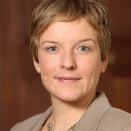Sinan Ülgen, Visiting Scholar at Carnegie Europe, on the reinvigoration of the Turkish-European relations
Turkey’s EU accession process seems to be hopelessly stalled: More than two years have gone by without a single negotiating chapter being opened. Therefore, Sinan Ülgen, visiting scholar at Carnegie Europe, argues that an interim solution is needed, one that would create a framework of cooperation between the EU and Turkey and thus would be able to bridge the current climate of frustration. Such a step could reinvigorate Turkish-European relations, explained Ülgen.
In the areas of foreign and security policy, neighborhood policy, foreign trade, mobility, and climate change he sees the greatest potential for a deepened cooperation that would offer both Brussels and Ankara a number of advantages. However, according to Ülgen, this model is not meant to be an alternative to the accession process, but rather a complement. He stressed the urgent political need to revive the Turkey-EU relations, as there is a very real threat that the country is turning away from Europe. Ülgen appealed urgently that a “gridlock is not an option.”
Almut Möller, head of Program of the Alfred von Oppenheim Center for European Policy Studies of the DGAP, placed Ülgen’s proposal of a flexible and deepened cooperation between the EU and Turkey in the context of the current debate on differentiated integration. Möller shared Ülgen’s assessment regarding the urgency of a deepened Turkish-European cooperation. However, she pointed out that the German Federal Government rejects any form of flexible integration – for European integration in general, but also for enlargement and neighborhood policy. The fear is that a ‘pick and choose’ attitude could be a step toward the gradual dissolution of the EU. In addition, it is not clear if the a constellation Ülgen outlines is feasible, as the accession negotiations are likely incompatible with a flexible framework of cooperation, said Möller.
The panellists were invited to take part in the discussion by the Alfred von Oppenheim Center for European Policy Studies as part of the “Brussels Briefing” series of events at the DGAP. The discussion was moderated by Sylke Tempel, editor in chief of the magazine Internationale Politik.
